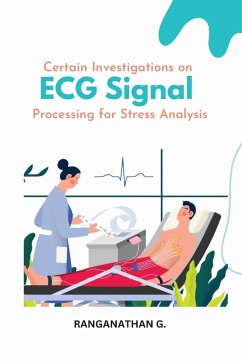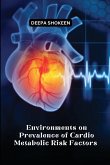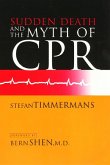Certain investigations on ECG signal processing for stress analysis involves using machine learning algorithms to analyze electrocardiogram (ECG) signals and assess stress levels. This approach utilizes various techniques for ECG signal processing, such as feature extraction, wavelet transform, and time-frequency analysis, to identify patterns and abnormalities associated with stress. The stress analysis involves quantifying various parameters, such as heart rate variability, T-wave alternans, and arrhythmia detection, to assess the level of stress and its impact on cardiovascular health. The results of this analysis can aid in the diagnosis, prognosis, and treatment planning of patients with stress-related cardiovascular disorders. This method has several advantages, including the ability to detect subtle changes in ECG signals that may be missed by human observers, the potential to provide more accurate and objective measures of stress levels, and the ability to integrate data from electronic health records and other sources. Overall, this approach has the potential to improve medical decision-making and provide more personalized care for patients with stress-related cardiovascular disorders.







